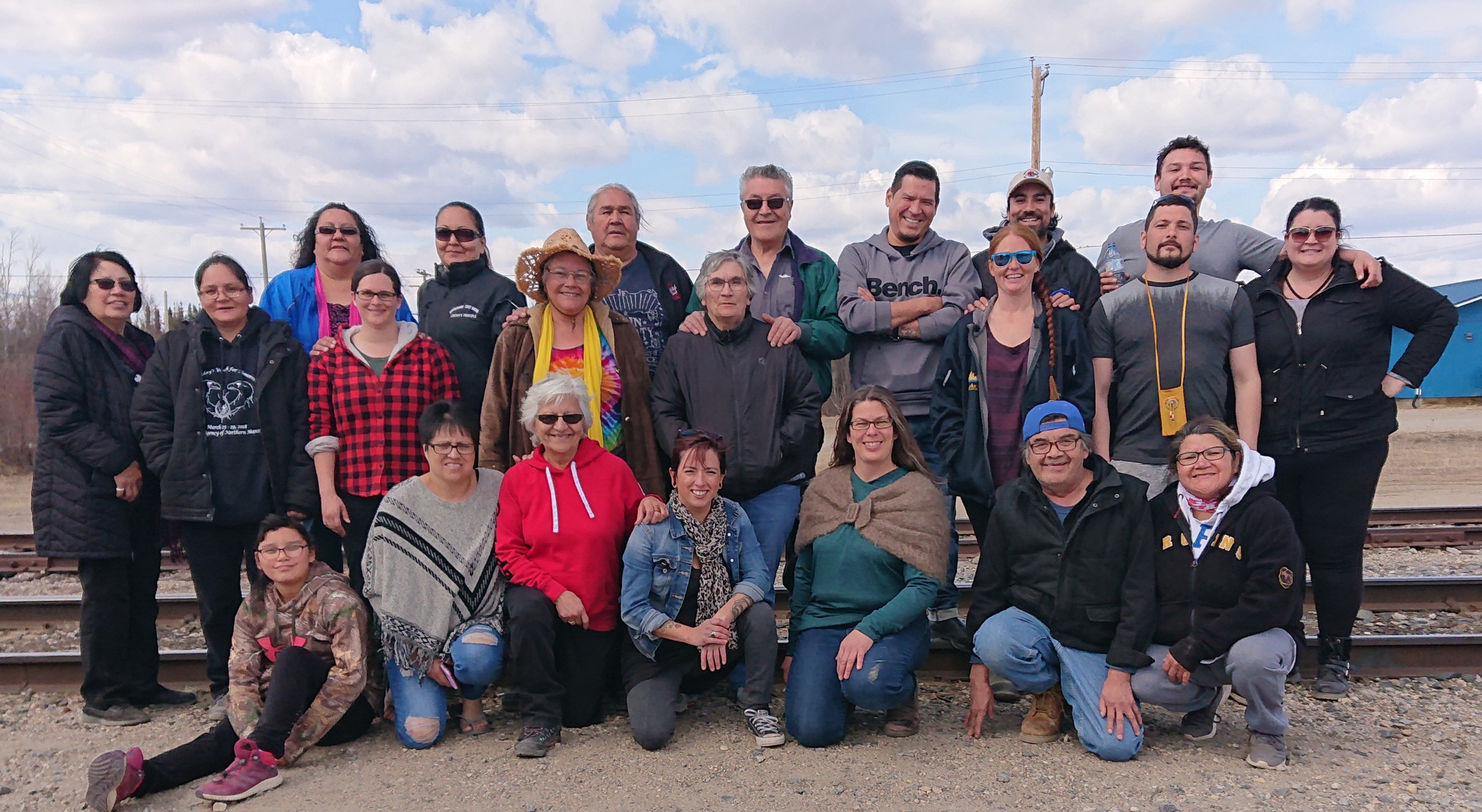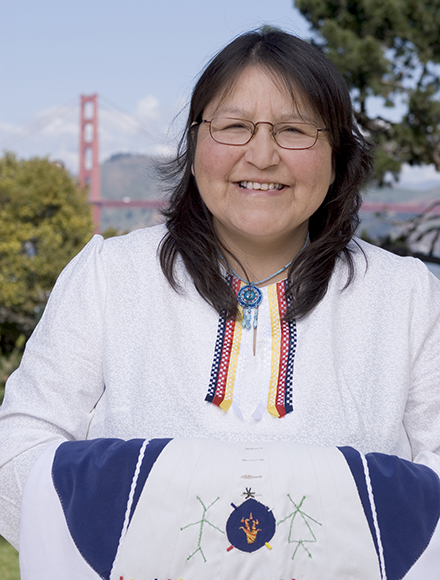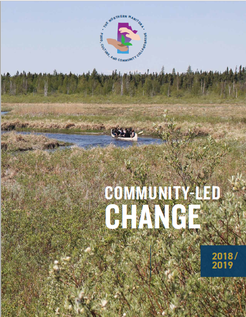Since time immemorial, Indigenous communities have been practicing holistic ways of being, and relationships with land and water. These ways of being and reciprocal relationships sustained nations. That is, until colonization disrupted and damaged local food systems, knowledge sharing, and self-reliance within communities. Despite these disruptions, broken treaty promises, and continued damages to land and water, Indigenous communities in Northern Manitoba remain resilient. As such, they have been working towards restoring and relearning traditional practices around food and relations through community-led projects and initiatives.
Learning about these projects led University of Toronto professor and sustainable food systems researcher Jennifer Sumner to reach out to the Northern Manitoba Food, Culture, and Community Collaborative (NMFCCC, or the Collaborative). The NMFCCC is a group of community members, Northern Advisors, and funders working to foster healthier and stronger communities through improved access to healthy food and resilient local economies. These community-led projects and initiatives are examples of how communities have been strengthening food sovereignty in the north. These initiatives also complement the UN Sustainable Development Goal of Zero Hunger, which Sumner and her team sought to research.
On November 14, Tides Canada hosted a webinar to discuss how communities in Northern Manitoba and the Collaborative have been partnering on community-led food solutions and insights from Jennifer’s UN-presented paper. Read on for a summary and full video of the webinar.
Building sustainable food solutions – Webinar Summary

About the NMFCCC
To kick off the webinar, Program Lead Julie Price introduced the NMFCCC. The Collaborative started five years ago at the request of Northern Manitoba communities. Remote, isolated, and often underserved by philanthropic organizations, communities have a clear vision for what they want to increase food sovereignty including establishing and expanding gardens, country foods distribution programs, culture and land-based learning, and inter-generational and community knowledge sharing. Thus, the NMFCCC was formed. The NMFCCC is comprised of six Northern Advisors, two staff, communities and community members, and over a dozen contributing organizations, and takes an opportunities-based approach to partnering with communities.
Insights from Northern Advisor and Elder Sophia Rabliauskas

Following the webinar introduction, Northern Advisor Sophia Rabliauskas shared insights about food challenges and initiatives in her community, Poplar River. She also shared about the Collaborative’s involvement in strengthening food sovereignty in Northern Manitoba. First, she discussed the role of colonization in the loss of Indigenous ways of living off the land (trapping, fishing, farming, etc.). Because of this loss, many have few alternatives to store-bought and highly processed foods. Many communities, including Poplar River, are working to bring that knowledge back by reintroducing traditional Indigenous practices to the community. This includes equipping youth with the skills needed to continue these practices moving forward.
Sophia shared that this work is not about profit: “This is to share with our community. This is for the community. The ownership is on the community. And I think that’s a very important part of providing for yourself and your community. And taking it upon yourself to say, ‘This is what we need. This is what our community needs'”. Afterwards, Sophia acknowledged the Collaborative’s efforts, and those of similar projects in Northern Manitoba. Finally, she described these community initiatives as a form of “healing the community” and protecting the land and ecosystem for future generations.
The UN and the Social and Solidarity Economy – Jennifer’s research

In the final section of the webinar, Jennifer discussed her research on Indigenous communities and the Social and Solidarity Economy (SSE). SSEs are activities that prioritize social and often environmental objectives. While SSEs can provide a number of products and services, Jennifer and her team focused on food. Specifically, they were interested in how Indigenous communities were using the SSE to address hunger. Jennifer believes Indigenous SSE initiatives have a lot teach non-Indigenous people because of the “quadruple bottom line”: economic, social, environmental, and cultural objectives. Initially, the team created a database of sustainable local food initiatives in Indigenous communities in Canada. They found a number of innovative solutions across the country, with many organized into clusters. And one of these clusters was in Northern Manitoba.
Jennifer explained that the Collaborative and community project goals aligned with the SSE–and vice versa–and already worked towards eliminating hunger. These goals include increasing food security and access; improving vegetable and fruit yields; promoting healthy eating; making gardens sustainable; sharing food together; and supporting those who want to start their own initiatives. Thus, her team decided to use the NMFCCC as a case study. They highlighted the Peguis Agriculture Project in Peguis First Nation as an example of how a community-led project is addressing food insecurity, creating employment opportunities, building relationships within the community, and re-connecting to Peguis’ history of agriculture and food sovereignty.
Final Thoughts
Following the webinar, there was a Q&A session filled with thoughtful questions and comments. Although only an hour, the webinar provided lessons about the importance of both community-led and Indigenous-led initiatives that put local people at the centre of the work. One key takeaway was the lack conversation by and representation of Indigenous peoples at the UN conference. Additionally, there was a lack of focus on the how Indigenous communities are re-establishing and strengthening sustainable food systems, and how others around the world can learn from them. This paper and this webinar contribute to the budding conversation.
We thank all of our participants and attendees for taking the time to tune in. If you’d like to stay updated on Tides Canada news and events, be sure to follow us on social media @TidesCanada and subscribe to our email newsletter. For more information about the Northern Manitoba Food, Culture, and Community Collaborative, visit www.nmfccc.ca and check out their 2018/2019 Community-led Change Booklet.
Full Webinar Recording
Click on the video below to learn more about how Indigenous communities are addressing Zero Hunger.
